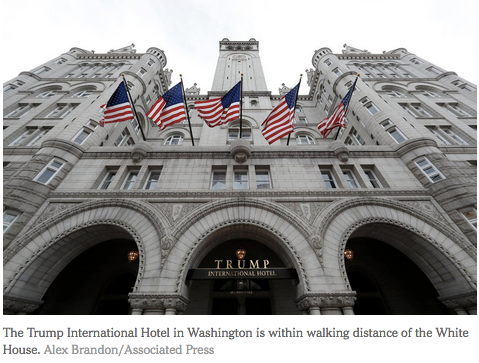The defendant was elsewhere, stirring and twittering in his new city, his name rarely spoken — just the title sufficed — but always top of mind inside an overstuffed Manhattan courtroom.
“The president” is a businessman, the plaintiffs’ lawyer reminded the judge. “The president” refuses to leave the marketplace. This is hardly a fair fight, the logic goes, for those who are not “the president.”
“I want to address the government’s view,” said the lawyer, Deepak Gupta, “that the president is above the law.”
Such was the civic exercise on Wednesday — part liberal catharsis theater, part constitutional drama of the highest order — aimed at answering a simple question: Is a sitting president, disinclined to relinquish his gilded empire, violating the Constitution by continuing to own and profit from his businesses?
The proceedings were the most prominent turn yet in a nearly yearlong legal effort to shine a light on President Trump’s business ties and press him to divest. At issue is a lawsuit filed this year in the United States District Court for the Southern District of New York by a legal watchdog, Citizens for Responsibility and Ethics in Washington, or CREW. The group argues that Mr. Trump is violating a constitutional provision that a president may not accept any economic benefit from foreign governments or the United States government beyond a salary.




